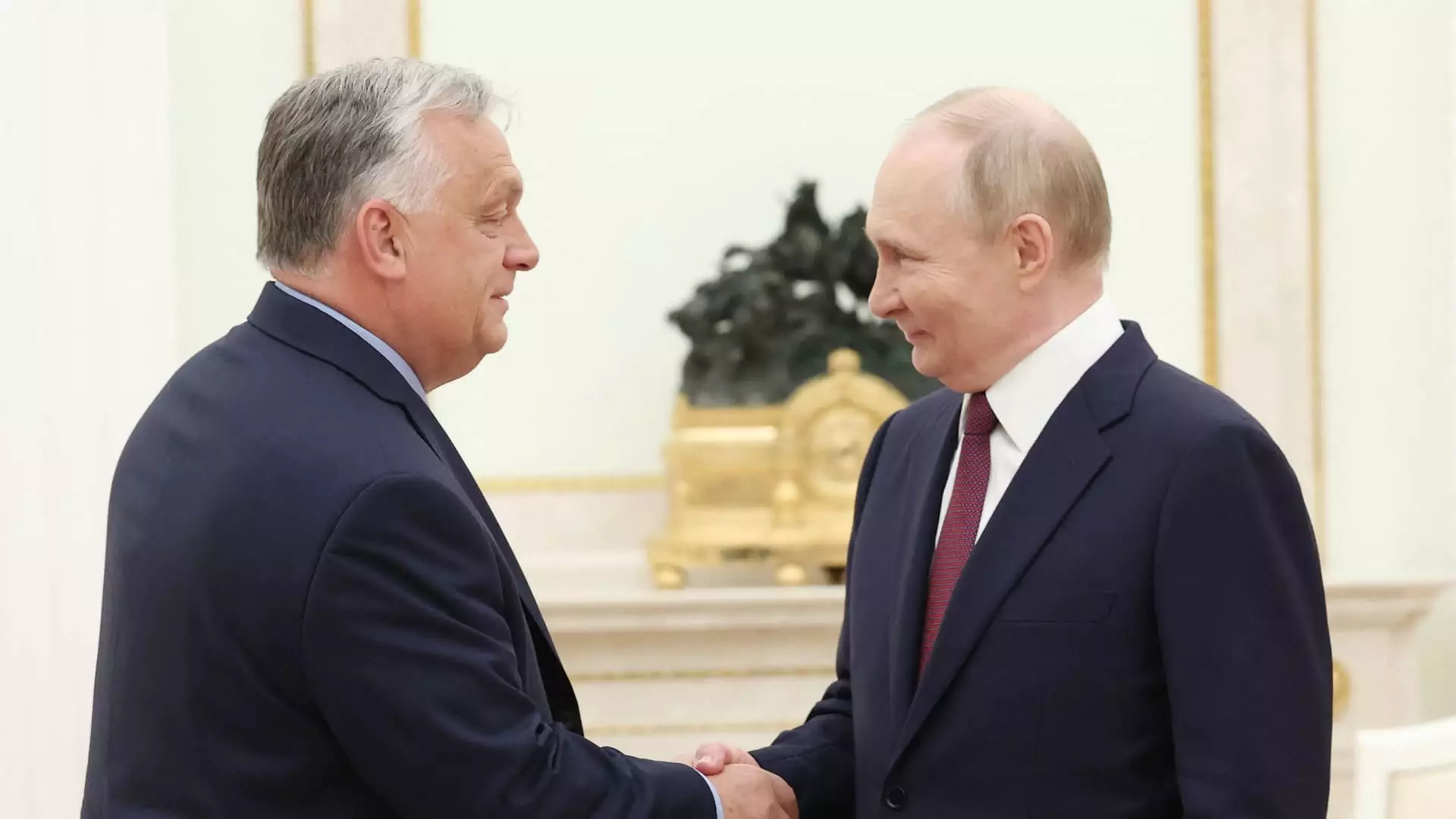Hungarian Prime Minister Viktor Orban’s recent trip to Moscow to meet with Russian President Vladimir Putin has surfaced as a significant geopolitical maneuver that has provoked widespread criticism from various corners of the European Union (EU). This visit marks Orban’s role as a self-proclaimed “peacemaker,” although many view his actions with skepticism against the backdrop of Hungary’s controversial relationships with both Russia and Ukraine. His administration has consistently resisted, yet ultimately allowed, military and financial support for Ukraine, fostering debates on the moral responsibility of nations in conflict territories, especially within a bloc aimed at collective security.
As Hungary holds the rotating presidency of the EU, the optics of Orban meeting Putin prompt serious questions about the effectiveness and coherence of EU foreign policy. Critics argue that Orban’s actions undermine collective EU strategies meant to address the crisis in Ukraine, particularly as most Western nations have distanced themselves from Russia in response to the invasion that began in February 2022. Orban’s assertion that Hungary would facilitate dialogue between Russia and Ukraine stands in stark contrast to the prevailing stance of NATO and the EU, which emphasize unity and a consistent front against Russian aggression.
Hungary’s unique position in the current geopolitical landscape allows it to engage with both Russia and Ukraine, a circumstance Orban appears to leverage to assert his role in diplomatic forums. This capability was highlighted by NATO’s recent decision to allow Hungary to abstain from contributing to the coalition’s efforts in support of Ukraine, framed as a necessary compromise to ensure that Hungary would not obstruct other initiatives aimed at aiding the war-torn country. This tactical maneuvering raises eyebrows about whether Orban’s government is genuinely seeking to broker peace or simply maintaining a stance that allows for its own geopolitical and economic advantages.
The Hungarian Prime Minister presented his meeting with Putin and subsequent dialogue with Ukrainian President Volodymyr Zelenskyy as part of a wider “peace mission,” aimed at facilitating a cease-fire and promoting negotiation. However, skepticism lingers regarding the sincerity of these overtures. Zelenskyy’s remarks following their meeting indicated a desire for improved bilateral relations, yet reiterated Ukraine’s crucial principle that any agreements about its future cannot occur without its direct involvement. Orban’s unilateral approach risks alienating Ukraine while simultaneously courting favor with Russia, which could jeopardize Hungary’s standing within the EU.
The backlash from EU officials following Orban’s Moscow visit emphasizes an internal discord regarding Hungary’s foreign policy trajectory and its broader implications for the EU’s cohesion. Key figures like EU chief diplomat Josep Borrell and European Commission President Ursula von der Leyen have denounced Orban’s attempts to represent the EU in matters concerning Russia. They stress the need for a united stance to effectively counteract Putin’s ambitions if a just and lasting peace is to be achieved in Ukraine. This divide raises concerns about the potential fragmentation of the EU’s response to geopolitical crises in the region.
As the EU navigates the complexities of a multi-faceted diplomatic landscape, the repercussions of Orban’s actions linger. The tensions surrounding Hungary’s foreign policy decisions reveal underlying ideological battles within Europe, contrasting the calls for solidarity against aggression with national interest calculations that sometimes prioritize individual states’ relationships over collective agreements. Such dynamics prompt deeper questions about the future of European unity and the efficacy of its mechanisms in dealing with external conflicts.
While Orban’s intentions may include genuine pathways toward peace, the skepticism surrounding his motives suggests a pressing need for transparent and inclusive dialogue involving all stakeholders, particularly Ukraine. The calls from Kyiv for adherence to the principle of “no agreements on Ukraine without Ukraine” are not just formalities but represent the heart of genuine diplomacy in conflict resolution—a commitment to ensuring that all involved parties have a voice in navigating their future.
As Hungary continues to hold the EU’s presidency, it has the opportunity to redefine its role on the European stage, moving from an image marred by controversies toward one that prioritizes collaborative efforts in fostering peace. The question remains: Will Orban’s administration embrace a more integrative approach to diplomacy, or will it continue to walk the fine line between appeasement and genuine efforts to resolve ongoing conflicts? As the geopolitical landscape evolves, informed and cooperative diplomacy will be paramount in achieving lasting peace in Ukraine and beyond.


Leave a Reply